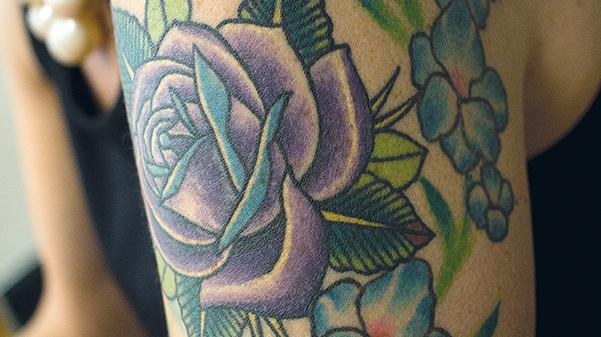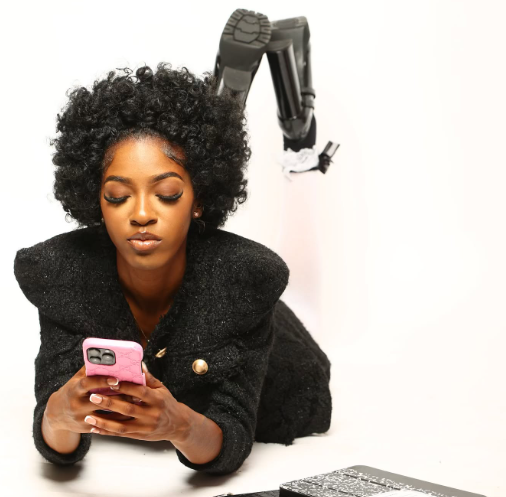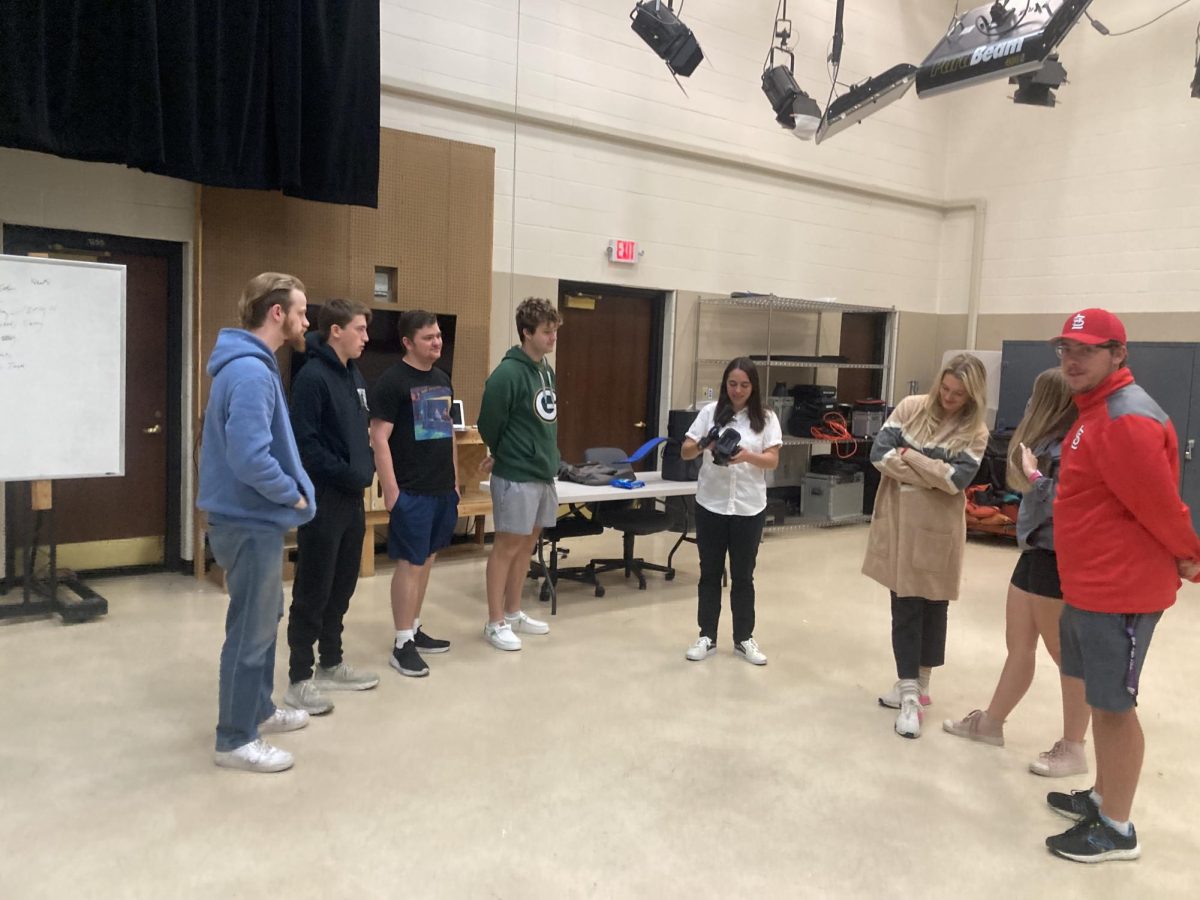Heather Brown-Hudson remembers getting a funny end-of-semester evaluation from a student about her tattoos.
“This one student said, ‘I wish that her tattoos were not so public,’ and I just laughed,” said Brown-Hudson, associate professor of French and English and chair of the Gender Studies program.
At the time, her only visible tattoos were rather small and located on her feet, she said.
“I’m guessing some people are actually opposed to the idea of tattoos; they think they are still taboo,” she said, adding that she never felt judged because of them.
Tattoos have been on people’s bodies in some cultures for thousands of years. The earliest record of tattoos, according to The Guardian, was found on Ötzi the Iceman who lived 5,300 years ago. However, for a long time in the United States, tattooed people often have been looked at with disdain.
[perfectpullquote align=”right” cite=”Joshua Kantola” link=”” color=”#f8de91″ class=”” size=””]“Eighty percent of my body is tattooed, and I have been judged by people because, I guess, they are intimidated. It is unfortunate, but I do not let it bother me.”[/perfectpullquote]
Joshua Kantola, who works as a piercer at St. Louis Tattoo Company in Chesterfield, said, “Eighty percent of my body is tattooed, and I have been judged by people because, I guess, they are intimidated. It is unfortunate, but I do not let it bother me.”
Tattoos used to be seen as vulgar, unprofessional and risky for one’s working career. For some people, they still seem to have this negative connotation, said Lindenwood management professor Joy Peluchette.
Some studies based on customers’ reactions to tattooed employees show that “employers are negatively inclined” to hire people with tattoos, she said.
Peluchette said students need to consider what kind of profession they are pursuing before getting tattooed.
“There are more negative views from customers when it comes to restaurant staff, financial professionals and health care providers,” she said.
However, among creative fields, tattoos are more acceptable, she said.
Former Lindenwood University student Rihai Cong, who has both of his arms covered with tattoos, said, “I always hide them during job interviews because you never know what the person in front of you thinks about it.”
[perfectpullquote align=”left” cite=”Mike Whaley” link=”” color=”#f8de91″ class=”” size=”26″]“Every generation, what people think is attractive changes.”[/perfectpullquote]
Cong said, however, that he has never faced any issues because of his appearance.
“Except for my mom, nobody has ever told me anything against my tattoos,” he said. “I actually think it is kind of a myth that you are not going to get employed if you have tattoos.”
According to a survey by statisticsbrain.com last summer, 36 percent of U.S. adults aged 18-25 have at least one tattoo.
Mike Whaley, dean of Lindenwood’s School of Humanities, said he doesn’t believe that tattoos represent a stumbling block in today’s society.
“Every generation, what people think is attractive changes,” he said. “I told my students, ‘When I was your age, the only people with tattoos were in the Navy or in prison.’ Now they are popular.”
Brown-Hudson said she thinks getting a tattoo has almost become a rite of passage for Americans.
“Many young people will get one to sort of symbolize something, whether it is the death of someone, in memory of someone or the birth of a child,” she said.
She believes her tattoos have never been an obstacle in her career or daily life.
“If anything, I think they have worked in my favor,” she said.









